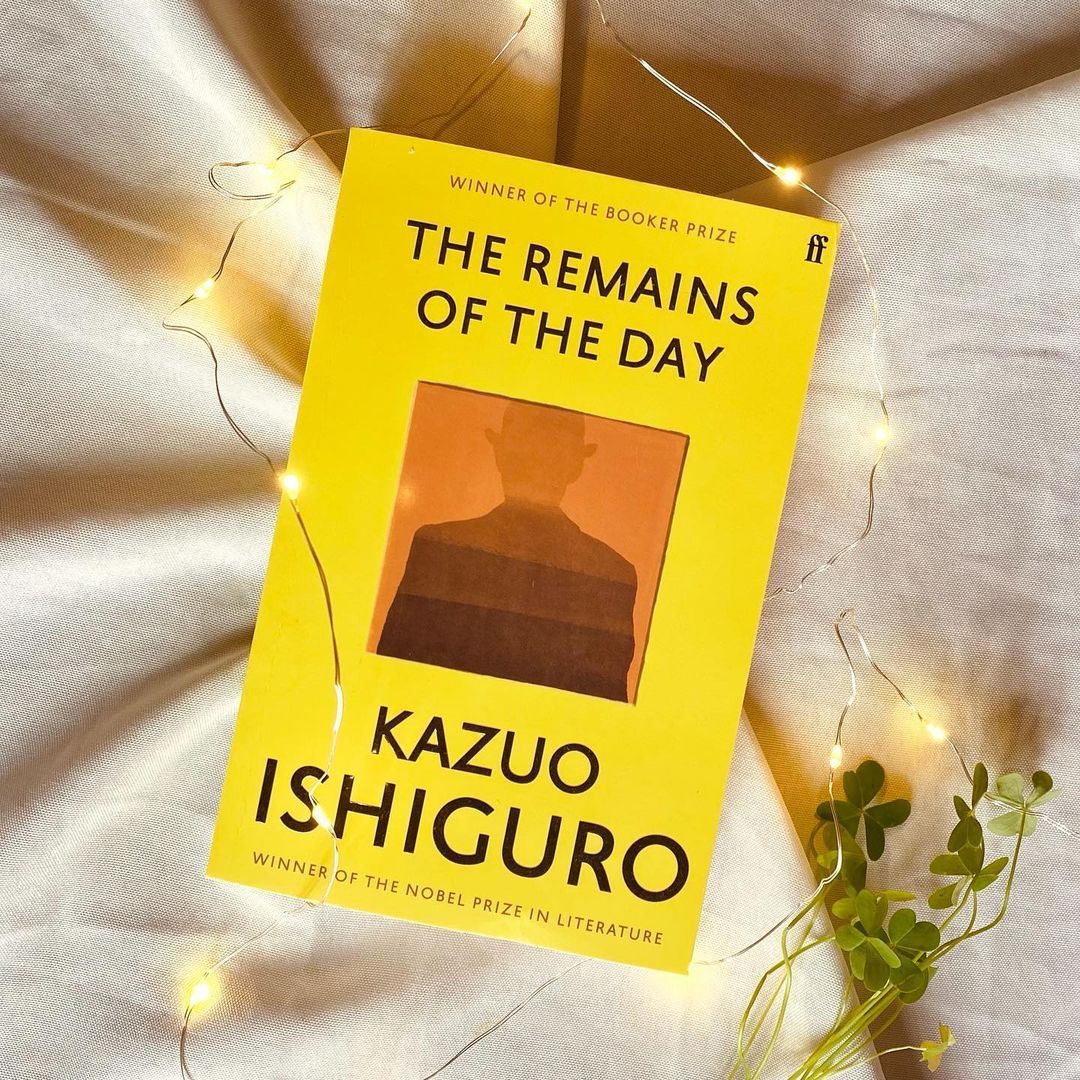Kazuo Ishiguro's Novels: A Study Of Memory, Forgetting, And Imagination

Table of Contents
The Haunting Power of Memory in Ishiguro's Works
Memory, in Ishiguro's novels, is far from a passive recording of the past; it's a dynamic force that shapes identity, dictates actions, and haunts the present. The characters in his narratives grapple with fragments of recollection, repressed traumas, and the selective nature of their own pasts. This unreliable nature of memory forms the very bedrock of Ishiguro’s storytelling.
-
Never Let Me Go: The clones' fragmented memories of their childhood, their struggle to piece together their identities, and the ultimately devastating impact of their predetermined fates are central to the novel's emotional power. Their incomplete memories mirror the incomplete lives they are forced to live.
-
The Remains of the Day: Stevens, the aging butler, clings to a meticulously crafted memory, suppressing his emotions and conveniently forgetting crucial aspects of his past. This selective memory is a defense mechanism, preventing him from confronting the painful realities of his loyal service and missed opportunities for personal fulfillment. His refined recollection is ultimately a form of self-deception.
-
Other Novels: Similar explorations of memory’s influence can be found in other Ishiguro novels. When We Were Orphans, for example, delves into the unreliable memories of a man searching for his lost parents, highlighting how memory can be both a source of solace and a catalyst for self-deception.
The Role of Forgetting and Repression in Shaping Character
Forgetting, often a consequence of trauma or uncomfortable truths, is another recurring motif in Ishiguro's work. His characters actively repress memories, engaging in self-deception to navigate the complexities of their lives and relationships. This act of forgetting has profound consequences, influencing their present actions and preventing personal growth.
-
The Remains of the Day: Stevens' repression of his feelings for Miss Kenton, and his unwavering loyalty to Lord Darlington, despite the latter's morally questionable actions, ultimately leads to a life of quiet regret and profound loneliness.
-
The Buried Giant: The characters in this novel suffer from a collective amnesia about a brutal war in their past. This shared forgetting clouds their present, fostering mistrust and hindering reconciliation. The societal implications of this collective forgetting are deeply explored.
-
When We Were Orphans: The protagonist's repressed memories surrounding his parents' disappearance shape his adult life and fuel his relentless, yet ultimately flawed, search for the truth. His inability to confront certain painful truths hinders his emotional development and ultimately affects his ability to form meaningful relationships.
The consequences of forgetting and repression, both individually and collectively, are potent themes weaving throughout Ishiguro's work, highlighting the enduring impact of the past on the present.
The Creative Power of Imagination and the Construction of Reality
Imagination plays a crucial role in how Ishiguro's characters perceive and construct their reality. He masterfully utilizes imaginative elements, often blurring the lines between fantasy and reality, to explore deeper thematic concerns. The unreliability of the narrators further complicates the reader's understanding of what is "real."
-
A Pale View of Hills: The narrative's ambiguity and reliance on subjective memories creates a shifting sense of reality, forcing the reader to question the veracity of the events depicted.
-
An Artist of the Floating World: The protagonist's memories and reflections are filtered through his personal biases and shifting perspective, highlighting the subjective nature of historical memory and its construction.
-
The Buried Giant: The fantastical elements of this novel—dragons, giants, and fading memories—serve as potent metaphors for the lingering trauma of war and the difficulty of coming to terms with the past.
The contrast between the subjective nature of memory and imagination, and the objective reality, is a key element in Ishiguro's work. Imagination, often, serves as a coping mechanism for characters struggling to make sense of their pasts, or it allows them to construct new identities and find meaning in their lives.
Conclusion: Understanding Kazuo Ishiguro's Masterful Exploration of Memory, Forgetting, and Imagination
Kazuo Ishiguro's novels consistently demonstrate the crucial role of memory, forgetting, and imagination in shaping character development and narrative structure. His exploration of these themes is not merely a literary device but a profound investigation into the human condition, showcasing the enduring power of the past and the fluid nature of personal and collective realities. Ishiguro's work forces us to confront the unreliable nature of memory, the consequences of repression, and the creative power of imagination in constructing our understanding of the world. His themes remain strikingly relevant in contemporary society, prompting reflection on how we remember, forget, and ultimately, shape our individual and shared narratives. Continue exploring Kazuo Ishiguro's masterful exploration of memory and imagination by reading Never Let Me Go, The Remains of the Day, and Klara and the Sun – a journey into the complexities of human experience awaits.

Featured Posts
-
 Saksikan Aksi Alex Rins Pecahkan Rekor Di Sprint Race Moto Gp Inggris Live Trans7 Malam Ini Marquez Terjatuh
May 26, 2025
Saksikan Aksi Alex Rins Pecahkan Rekor Di Sprint Race Moto Gp Inggris Live Trans7 Malam Ini Marquez Terjatuh
May 26, 2025 -
 Naomi Campbells Absence At Met Gala 2025 The Anna Wintour Conflict
May 26, 2025
Naomi Campbells Absence At Met Gala 2025 The Anna Wintour Conflict
May 26, 2025 -
 The Casting Of Robert Downey Jr In Jamie Foxxs All Star Weekend A Discussion
May 26, 2025
The Casting Of Robert Downey Jr In Jamie Foxxs All Star Weekend A Discussion
May 26, 2025 -
 La Justice Et Marine Le Pen Un Point De Rupture
May 26, 2025
La Justice Et Marine Le Pen Un Point De Rupture
May 26, 2025 -
 La Charentaise A Saint Brieuc Le Temps L Epreuve Et Le Succes
May 26, 2025
La Charentaise A Saint Brieuc Le Temps L Epreuve Et Le Succes
May 26, 2025
Latest Posts
-
 The Anticipation Builds Fans Await The Official Stranger Things Season 5 Release Date
May 29, 2025
The Anticipation Builds Fans Await The Official Stranger Things Season 5 Release Date
May 29, 2025 -
 Stranger Things Season 5 Everything We Know About The Premiere Cast And Ending
May 29, 2025
Stranger Things Season 5 Everything We Know About The Premiere Cast And Ending
May 29, 2025 -
 Stranger Things Season 5 Release Date The Growing Impatience Of Fans
May 29, 2025
Stranger Things Season 5 Release Date The Growing Impatience Of Fans
May 29, 2025 -
 Separate But Simultaneous Two Stranger Things Actors Star In New Sci Fi Movies
May 29, 2025
Separate But Simultaneous Two Stranger Things Actors Star In New Sci Fi Movies
May 29, 2025 -
 Stranger Things 5 2025 Premiere Date Cast Updates And Final Season Hints
May 29, 2025
Stranger Things 5 2025 Premiere Date Cast Updates And Final Season Hints
May 29, 2025
